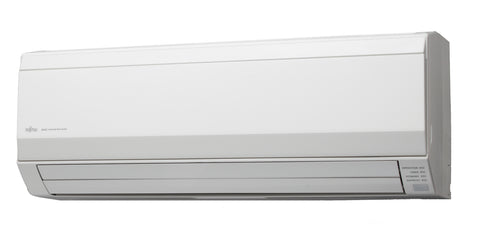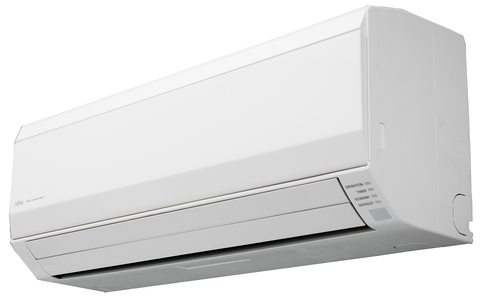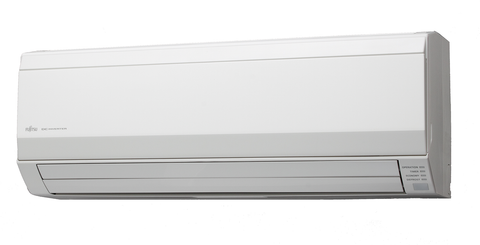Questions for us? We’ve likely answered it for you below!
 JUST ASK
JUST ASK
Power and Kilowatts FAQs
What are kilowatts?
Kilowatts (kW) are a unit of power, used to measure how much energy is being used at that given moment. A kW is a measure equivalent to 1000 watts of power. kWs are used to determine how much power an appliance will need to run. Kilowatts are not a measure of energy and should not be confused with kilowatt hours.
What are kilowatt hours?
A kilowatt hour (kWh) is the amount of energy delivered by one kilowatt in an hour. Generally used to measure energy usage in the home, kWh is the amount of energy it would take to run a 1000 watt appliance for an hour. Kilowatt hours are a common billing unit used by energy companies.
How many kilowatt hours does an air conditioner use?
How many kilowatt hours an air conditioner uses depends on a number of factors such as its size and efficiency. It also depends on how long the air conditioning unit is on for and what the outside temperature is. To reduce your running costs, ensure that you clean and service your conditioner regularly.
Air conditioner size FAQs
What size air conditioner do I need?
Determining what size of air conditioner you need will depend on the size of the room or property you intend to place it in, whether or not that property has insulation, where you live, and what direction your property faces. Larger rooms and properties will likely require more powerful air conditioning systems since there is more air to cool or heat. Proper insulation prevents much heat from leaving your home in winter and entering your home in summer. This translates to less capacity needed from your air conditioner. Location is important because climate can be more intense in certain regions, increasing your need for air conditioning. And orientation is important because it affects how your house interacts with air flow and heat. If your home has windows facing north or west, it may let in a lot of heat in the summer, whereas rooms that face south may take less energy to keep cool.
How to calculate air conditioner size for a room?
To calculate the size of the air conditioner that you need for a room, the main factor is the room’s size. Measuring the floor space against ceiling height gives you a size that you can inform your air conditioner installer of. To get an approximation of the kWs required to cool an area, please contact our professionals today.
How to calculate air conditioner size for a house?
You calculate the size of the air conditioner for a house by measuring the size of the rooms you want cooled. It also depends on whether you are using a ducted system or a split system. To get an approximation of the kWs required to cool an area, call one of our professionals today.
Refrigerated cooling FAQs
What is refrigerated cooling?
Refrigerated cooling means reducing the temperature of an area to lower than its natural, surrounding temperature. It’s an artificial process used by most air conditioning systems to achieve an ambient state, regardless of their brand or type. Refrigerated cooling is used to make households cooler and more comfortable.
How does refrigerated cooling work?
Refrigerated cooling works by drawing warm air into an air conditioning unit and cooling it down using a refrigerant. The refrigerant is a liquid that absorbs the heat from the air before recirculating cool air back into the room. After absorbing the heat, the refrigerant becomes a gas and is sent to the outdoor condenser unit. Here it is cooled down until it becomes a liquid again, before beginning the refrigeration cycle again. As refrigerated cooling does not rely on outdoor air or evaporation, it remains effective even in humid climates. For reverse cycle air-conditioning, this process may also be done in reverse to heat the air in your house.
Does refrigerated cooling use gas?
Refrigerated cooling uses refrigerant gas, which is capable of absorbing and releasing heat. It is able to switch between a gaseous and liquid state depending on what stage in the refrigeration cycle it is in. In reverse cycle air conditioners, it is also used for heating air.
What should I know about proper refrigerative cooling installation?
One of the most important things to know about refrigerative cooling installation is how important it is to get a qualified, knowledgeable refrigeration mechanic to install it. Most systems fail because of poor installation, rather than a defective unit. Make sure to ask your technician questions about the materials they use and the systems they are installing, as well as ensuring they are able to repair and service your system after installation, as required.
Can you change evaporative cooling to refrigerated?
While it is always possible to upgrade from one system to another, it is not possible to simply change an existing system from performing evaporative cooling to performing refrigerated cooling. They require different technologies and different duct-sizes. Changing one system for another is a simple task, however, and can usually be performed in a matter of hours.
Inverter air conditioners FAQs
What is an inverter air conditioner?
An inverter air conditioner uses an inverter to maintain the desired temperature in your home. In air conditioners, inverters are used to regulate the compressor speed. This is different from traditional air conditioners, which use fixed-speed compressors. The only way to regulate this type of compressor is to cycle on and off.
How does an inverter air conditioner work?
An inverter air conditioner works by regulating the compressor speed via the inverter. When you set the temperature that you want, the inverter compressor ramps up to create the necessary heat. Once that’s been achieved, it slows down to maintain the temperature through a constant low power mode. This saves on energy and cooling costs, while producing the temperature you want.
What are the differences between inverter and non-inverter air conditioners?
Non-inverter air conditioners have a fixed-speed compressor, which means that it can only operate at full power or no power. While this should not affect the system’s ability to reach the temperature that you want, it is less energy-efficient.
Are inverter air conditioners better?
Each system has its own advantages and disadvantages, but generally inverter conditioners are able to offer a more cost-effective, energy efficient service. They are also more consistent, with no temperature swings, and operate more quietly, making them the preferred option for many customers.
Ducted air conditioners FAQs
What is ducted air conditioning?
Ducted air conditioning is a complete home air conditioning system that uses ducts to heat or cool areas of the house. If ducted air conditioners have zoning features, they can heat or cool different areas of the house separately.
How does ducted air conditioning work?
Ducted air conditioning works using two main components; an outdoor condenser and an indoor unit. The condenser contains the compressor and heat exchanger coils that remove heat from the air. Meanwhile, the indoor unit has an evaporator, which absorbs heat from inside, and a fan, which distributes the cool air. The air travels through a network of insulated ducts which have vents leading into different rooms of the house.
How much does ducted air conditioning cost?
How much ducted air conditioning costs depends on the size and layout of your home. While it may be more expensive to install compared to other types, due to the labour involved, it offers energy efficiency and whole-home cooling. This means it is often a more cost-effective air conditioning option in the long term.
How to install ducted air conditioning
Once a qualified technician has assessed your home and planned the layout, they will need to mount the outdoor unit on a stable surface outside the home. Next, they will need to place the indoor unit in an indoor location, like the ceiling or attic, to ensure proper airflow and access. The technician will then need to cut into walls and ceilings to position the ducts and install vents in each room to deliver the air. After this, the system can be finalized and checked before beginning operation.
What are the main types of ducted air conditioning systems for homes?
There are two main types of ducted air conditioning systems; add-on cooling and dedicated ducted splits. Add-on cooling is most competitive in terms of price as it allows shared heating components and ductwork. But since there’s a minimum size of duct required for cooling, ducts often have to be redone. Dedicated ducted splits are more expensive to install but offer more choice of manufacturers than add-on solutions.
Evaporative coolers FAQs
What is an evaporative cooler?
An evaporative cooler is an air conditioning system that uses moisture to cool air through the natural process of evaporation. Although this makes evaporative coolers cheaper and more eco-friendly than some systems, it relies heavily on there not being too much humidity. Because of this, evaporative cooling is best suited to hot, dry climates.
How do evaporative coolers work?
A fan pulls warm air into the unit, where it passes over highly absorbent wet pads, saturating them. As the air passes through the pads, the water evaporates, absorbing heat from the air and producing a cooling effect. The newly cool air is then circulated through the rest of your home through vents or ducts situated throughout the building.
Are evaporative air coolers effective?
The effectiveness of an evaporative air cooler depends on the climate you’re living in. They are best in hot, dry climates and are not recommended for wet or humid environments. They depend on air constantly circulating and need a reliable water supply to function. Under those circumstances, they can be an efficient, cost-effective choice.
What are the pros and cons of using evaporative coolers?
One of the pros of installing an evaporative cooler is that it can cost less to install initially. Depending on the fan involved, it can also be cheaper to run, although this isn’t a guarantee. On the negative side, it can increase the humidity, so it depends very much on the climate you live in. It also requires more maintenance and can only cool relative to that day’s dew point.
Legionnaires’ disease FAQs
What is Legionnaires’ disease?
Legionnaires’ disease is an atypical pneumonia or lung disease, caused by the bacteria Legionella. It can be contracted in two ways, either by contact with Legionella Pneumophila found in contaminated water, or Legionella Longbeachae which contaminates soil or potting mix and can be airborne. It’s rare, but can be life-threatening. Legionnaires’ disease is treated by antibiotics, but may require some time in hospital.
What are the main risk factors for contracting Legionnaires’ disease?
Legionnaires’ disease does not affect everyone who comes into contact with the bacteria. Smokers, or those suffering from chronic illnesses like heart, lung or kidney disease, diabetes or cancer are at a higher risk of contracting Legionnaires’ disease. Those who might have immune suppression from taking medication like steroids are also at a greater risk, as are people over 50. Symptoms for Legionnaires’ disease are similar to those of flu, fever fatigue, shortness of breath, chills or headaches. However, some sufferers experience no symptoms at all.
Air conditioning brands FAQs
How to pick the right air conditioning brand
The right air conditioning brand will depend on your personal needs and the features that a specific brand provides. Certain brands specialise in certain product types, such as evaporative coolers. Researching a brand allows you to learn more about their offerings and how these might fit into your lifestyle. It is also worth speaking to a professional who can help you consider your options.
Do premium air conditioning brands deliver better performance and value over cheaper alternatives?
While premium air conditioning brands like Fujitsu and Actronair tend to be efficient with useful features, cheaper brands may also offer solid performance and excellent value for money. There are many high-quality options available for homeowners on a budget. It’s only in very cheap units from disreputable brands that quality begins to suffer.
What are the best air conditioning brands for balancing quality, value, and performance?
A range of air conditioning brands can offer a balance between quality, value and performance. Some of the top brands available for refrigerated air conditioning are Fujitsu, Actronair and Samsung. Meanwhile, Bonaire and Cool Breeze offer great products for evaporative cooling.
Air conditioner maintenance FAQs
Do air conditioners need maintenance?
Like most appliances, air conditioners require regular maintenance to maximise their efficiency and ensure they run smoothly. Maintenance generally involves cleaning out the air conditioning unit and making sure that all its components are working properly. The best time to book a comprehensive service is before the season changes, so that your system is working optimally before summer.
How often do air conditioners require maintenance?
Domestic air conditioners should typically be serviced professionally every twelve months to avoid either short or long-term problems. This ensures that they will continue to operate at maximum efficiency. For anyone wishing to be extra careful, getting an air conditioner serviced every six months is an option.
How much does air conditioner maintenance cost?
The cost of air conditioner maintenance varies, depending on region and the type of system that has been installed. As a general rule, you should not expect to pay more than two hundred dollars. Regular maintenance means more efficient systems and lower bills, so it is worth spending the money to maintain your air conditioner. Repair problems identified within a routine service are priced separately.
What routine maintenance is required for evaporative coolers vs air conditioners?
Air conditioners and evaporative coolers have somewhat different maintenance requirements. Evaporative coolers need the water distribution cleaned so that the pads don’t dry out. Although newer coolers self-drain they still need flushing periodically and the pads need changing when they begin to rot. For air conditioners, the return air filters require cleaning, particularly if you have a dusty house. If it is not cleaned, the unit can ice up and stop working. The inside of the unit should be wiped down at regular intervals, while the condenser needs to be kept dust-free with an unobstructed airflow.
Split system air conditioner FAQs
What is a split system air conditioner?
A split system air conditioner is an air conditioning system designed to cool a specific area or room in the house. It is typically composed of an indoor component and an outdoor component. The indoor component absorbs heat, while the outdoor unit cools and pumps the heat back into the indoor unit through small tubes that connect the two.
What size split system do I need?
The size and intended use of your room will determine the size of the split system you require. The sun exposure and type of installation the room has will also make a difference. It’s best to consult a qualified technician rather than make a costly mistake.
How much does it cost to install a split system air conditioner?
The cost of a split system air conditioner depends on the size of the system and the circumstances around the installation. Generally, a standard back-to-back split system installation, including wiring and the appropriate permits, will cost $600 to $800, depending on the specifics. A non-standard split system installation with brackets, ductwork, a long run or additional power requirements will be more expensive.
What factors influence the costs of split system air conditioners?
The cost of your split system air conditioner will depend on the season it’s installed in and the quality of work. While it may be possible to find cheap options, a poor installation will lead to expensive repairs costs later on. The optional extras available with a split system, such as ductwork or additional power requirements will obviously cost more. All split installers in all states are required to be licensed by the Australian Refrigeration Council and the person doing the wiring needs to hold a restricted electrical licence at a minimum. You should also get a certificate of compliance for the electrical work.
Multi head split system air conditioners FAQs
What is a multi head split system?
A multi head split system is an upgrade on a standard split system that allows multiple indoor units to operate from one outdoor unit. Each indoor unit can be controlled independently, allowing the user to cool different zones in the house separately.
Are multi head split system air conditioners good for whole house cooling?
Multi head split systems can be a good option for whole house cooling, as they allow you to zone off separate rooms and areas. They work well for houses with limited outside space, although they can be more expensive to install due to the additional ductwork required.




